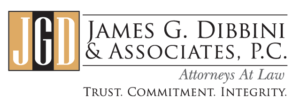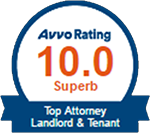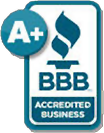What Multi-Unit Property Owners Should Know About the DHCR
If you are interested in buying a multi-family building located in New York City or Westchester County, specifically a building with six units or more, it is imperative that you learn more about the Division of Housing and Community Renewal (DHCR) and its requirements.
The DHCR is a state agency responsible for supervising, maintaining and developing affordable low and moderate income housing in New York. The DHCR administers housing development and community programs and regulates housing accommodations which are subject to rent control or rent stabilization under the Rent Stabilization Code (RSC), in New York City, and the Emergency Tenant Protection Act of 1974 (ETPA), in Westchester County.
Generally, the RSC applies to privately owned properties in NYC built between February 1, 1947 and December 31, 1973 which contain six units or more. It also applies to tenants in buildings built before February 1, 1947 who moved in after June 30, 1971. The ETPA applies to privately owned properties outside of NYC, including some cities and towns throughout Westchester County, built before January 1, 1974 which contains six units or more. Also, some buildings built after these dates or have less than six units may be subject to rent stabilization laws for tax abatement purposes.
Property owners of buildings subject to rent stabilization laws are required to register the rents of these units with the DHCR annually. If property owners do not register with the DHCR, they can be disqualified from applying for, charging or collecting any rent increases and could be subject to additional, significant penalties. It can also delay or prevent a sale or refinance of the property.
However, there are exceptions which can release a property owner from having to register with DHCR. For instance, an occupied apartment becomes exempt if the legally regulated rent for that apartment exceeds $2,500.00 and the tenant’s total annual income exceeds $200,000.00 for a period of two years. Further, any apartment with a monthly rent of at least $2,500.00 becomes deregulated when it becomes vacant so long as the property owner files a report of decontrol with DHCR.
Property owners can also apply to the DHCR for approval to raise the rents of rent stabilized units based on major capital improvements (MCI). Some examples of MCI items include boilers, windows, electrical rewiring, plumbing and roofs. Also, to be eligible for the MCI increase, it must be a new installation and cannot be a repair to old equipment. These improvements help increase the rent which eventually may lead to deregulation of the rental unit.
If no exceptions apply or the unit is not deregulated, a property owner must file registrations with the DHCR by completing and mailing Annual Registration Summary (Form RR-2S), as well as an Annual Apartment Registration Form (Form RR-2A) for each rental unit, prior to July 31st of each year. Also, all vacancy and renewal leases for apartments dated October 1, 2014 and later must include a lease rider or addenda, depending on where the property is located, with all registrations. The rider form for rent stabilized apartments in New York City is named RA-LR1 and can be found by clicking on the following link: http://www.nyshcr.org/Forms/Rent/ralr1.pdf. The addenda form for rent stabilized apartments in Westchester County is named RA-LR1 (ETPA) and can be found by clicking on the following link: http:// www.nyshcr.org/Forms/Rent/ralr1-ETPA.pdf.
As stated above, failure to file registration statements can prevent or substantially delay the sale or refinance of a property. Potential purchasers of rental properties generally and justifiably request to see DHCR registrations for the previous four-year period before entering into a contract of sale. Potential purchasers want to make sure the rent being charged is legal; they do not want to buy a property that may be subject to lawsuits by tenants who file rent overcharge complaints. Further, lenders generally refuse to provide financing to Purchasers if DHCR records are not available because of owner’s failure to file the required registrations. Thus, it is in the best interest of the owner of rent stabilized property to file the DHCR registrations annually.
James G. Dibbini & Associates, P.C. has extensive experience in DHCR matters and can assist you with all DHCR matters, including annual registrations, defending against tenant complaints for loss of services or rent overcharge and completion of applications for exemption based on major improvements to the property. Do not expose your company or yourself to rent overcharge claims or a roll-back of tenants’ rents. Call or email us today for more information on how to get in compliance with DHCR.
Municipalities subject to the ETPA in Westchester County: Croton, Dobbs Ferry, Eastchester, Greenburgh, Harrison, Hastings, Irvington, Larchmont, Town of Mamaroneck, Mount Kisco, Mount Vernon, New Rochelle, Pleasantville , Port Chester, Sleepy Hollow, Tarrytown, White Plains and Yonkers.







